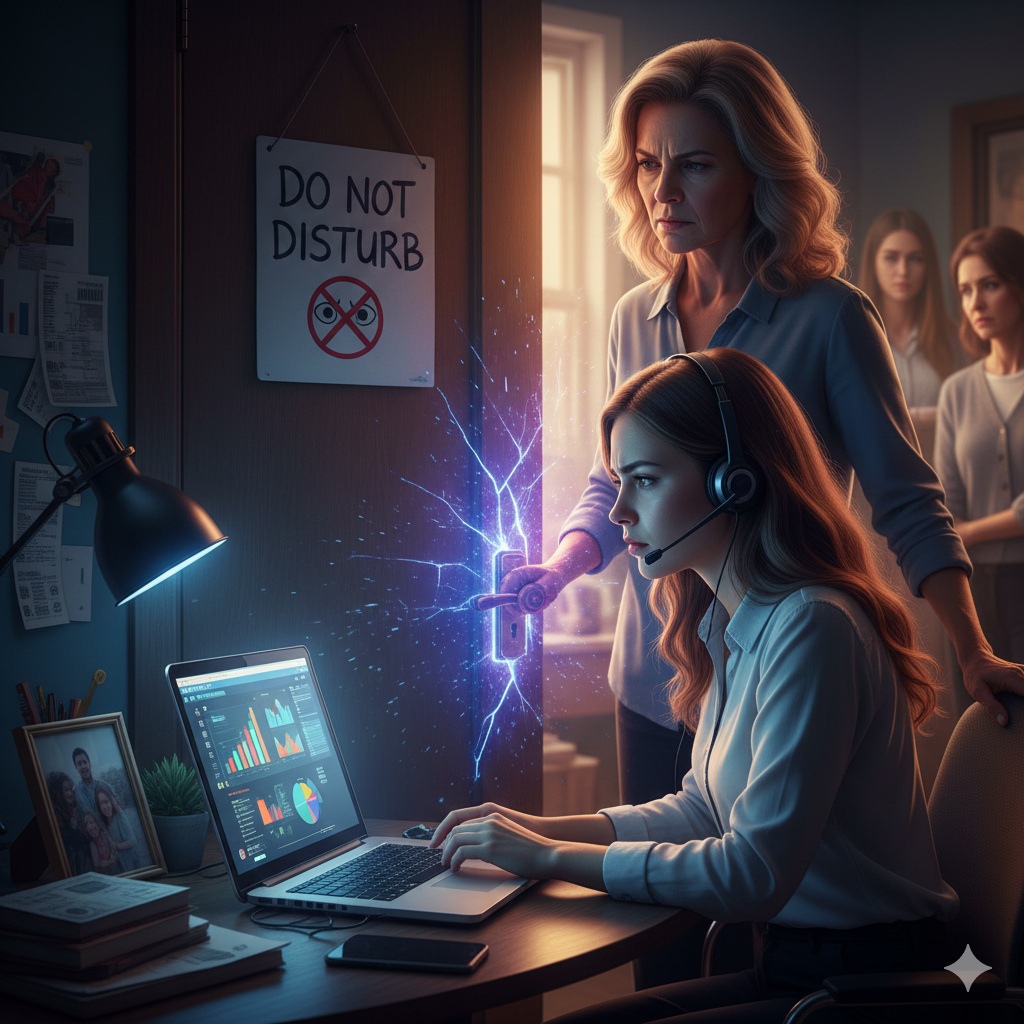The digital age has blurred the lines between our personal and professional lives, turning spare bedrooms into full-time offices and family dynamics into viral debates. A recent story shared on Reddit highlights this collision of worlds, sparking fury online over a mother’s relentless invasion of her Gen Z daughter’s privacy. This isn’t just about a noisy roommate; it’s a profound clash between traditional family expectations and the fundamental need for digital and professional boundaries.
The central figure is a 25-year-old woman who represents a rising demographic: the primary breadwinner in a multi-generational household. She works her “dream job” from home, a role that financially sustains her mother, older brother, sister-in-law, and niece—three other adults who are not employed outside the home. For the daughter, her bedroom is not just a personal space; it is her vital professional environment, demanding eight hours of uninterrupted focus, a necessity underscored by her suspicion that she may have ADHD. This scenario underscores how easily personal space can be compromised, much like concerns around smart home devices turning into privacy nightmares.
The conflict began when this crucial work-life balance was repeatedly undermined. Despite knowing her daughter’s professional demands, the 59-year-old mother would consistently “barge into” the room to chat, gossip, or perform chores. This behavior reflects a deeply traditional, communal view of the home, where the concept of a “locked door” or a private workspace is seen as an unnecessary luxury or even an insult to the family unit. To the mother, her daughter is simply “at home,” not at work. The inability to secure one’s workspace raises questions about how much control we truly have over our personal information and spaces, a concept explored in discussions about the battle for privacy in a digital age.
The daughter’s attempt to establish a minimal boundary—a simple “Do Not Disturb” sign and a locked door—was met with shocking hostility. The mother was overheard loudly complaining and insisting that the daughter, despite shouldering the entire household’s financial burden, did not “need privacy.” This is a sentiment often echoed in broader debates where personal privacy is challenged by those who believe it’s an outdated concept.
This reaction is what ignited such widespread fury online. The internet immediately recognized the core injustice: the daughter’s financial competency was being exploited, yet her basic dignity and professional respect were being denied. Commenters overwhelmingly branded the family’s behavior as a severe case of entitlement and emotional manipulation, with many urging the young woman to move out immediately. They argued that a financial contribution should, at minimum, purchase the right to a secure, private, and uninterrupted workspace.
This viral story serves as a case study in contemporary privacy concerns, proving that the digital privacy battle isn’t confined to data brokers and social media algorithms. It exists in the most intimate spaces—our homes. For the modern remote worker, privacy—whether physical or digital—is non-negotiable. It is the necessary foundation for professional productivity, personal well-being, and mental health. The mother’s insistence that her daughter didn’t “need privacy” exposed a generational gap where physical proximity trumps individual boundaries. The world agreed: privacy is a right, not a reward to be granted by the people you support. If a person is responsible for the family’s stability, they deserve to protect the space required to maintain it. This situation mirrors the struggles individuals face in reclaiming their digital rights against larger entities, but in a domestic setting.



